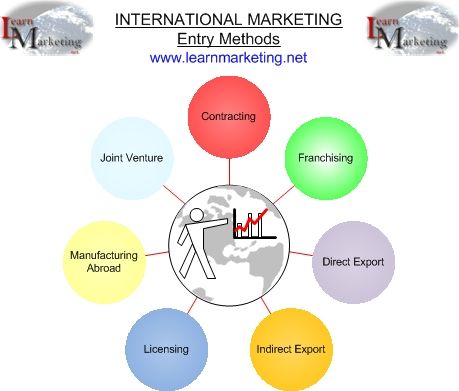Entering New Markets: International Business Expansion

In today’s rapidly evolving business landscape, expanding into international markets has become a crucial strategy for companies looking to scale and maximize growth potential. With advancements in technology, communication, and transportation, businesses have greater opportunities to tap into new markets across the globe. However, entering new markets requires careful planning, market research, and effective marketing strategies to ensure success.
The Importance of International Business Expansion
Expanding into international markets presents numerous benefits for businesses. It allows companies to diversify their customer base, reduce dependence on a single market, and potentially increase sales and profitability. Additionally, entering new markets often provides access to new technologies, distribution channels, and talent pools, fostering innovation and competitiveness in the long run.
Understanding the International Market
Before venturing into an international market, thorough market research is essential. This research should encompass factors such as cultural norms, legal regulations, political stability, economic conditions, and competition analysis. Understanding these factors allows businesses to tailor their products or services to meet local needs, address potential challenges, and position themselves effectively within the new market.
Building Strong Partnerships
A vital aspect of entering new markets successfully is establishing strong partnerships with local entities. These partnerships can include distributors, suppliers, or strategic alliances with established businesses already operating within the target market. Collaborating with local partners not only helps navigate cultural nuances and market dynamics but also provides access to a pre-existing customer base and local expertise.
Adapting Marketing Strategies
Effective marketing strategies play a significant role in the successful entry into new markets. Businesses must adapt their marketing materials, messaging, and campaigns to resonate with the target audience’s culture and preferences. Localization efforts should extend beyond translation and should consider elements such as imagery, colors, and slogans that are meaningful to the local population. Employing native speakers or cultural consultants in marketing efforts can ensure authenticity and prevent any misinterpretations or cultural faux pas.
Risk Mitigation and Legal Compliance
Expanding into international markets introduces new legal and regulatory considerations. To mitigate risks and ensure compliance, businesses must familiarize themselves with the local laws, regulations, and customs. This includes understanding import and export regulations, taxation requirements, intellectual property laws, labor laws, and data protection regulations. Failing to comply with these regulations can lead to legal repercussions, damage the brand reputation, and impede business growth.
Utilizing Technological Advancements
Technological advancements have significantly facilitated international business expansion. E-commerce platforms, social media, and digital marketing provide cost-effective means to reach international customers even before establishing a physical presence. Analytical tools and customer relationship management software help companies monitor consumer behavior, assess marketing strategies, and optimize business operations. Utilizing these tools allows businesses to make data-driven decisions and streamline operations throughout the expansion process.
Overcoming Language and Cultural Barriers
Language and cultural barriers can pose challenges when entering new markets. To overcome these barriers, businesses can invest in language training for employees and leverage translation services. Building multicultural teams that understand the target market’s culture and language can help bridge the gap and establish relationships. Conducting thorough cultural sensitivity training also ensures that employees understand and respect the local customs, traditions, and etiquette, enabling smoother business operations.
Conclusion
Entering new markets through international business expansion opens doors to immense growth potential, market diversification, and opportunities for innovation. However, it requires meticulous planning, in-depth market research, strong partnerships, cultural adaptation, compliance with local regulations, and leveraging technological advancements. By employing these strategies and embracing the challenges of entering new markets, businesses can position themselves for sustained success in the global arena.